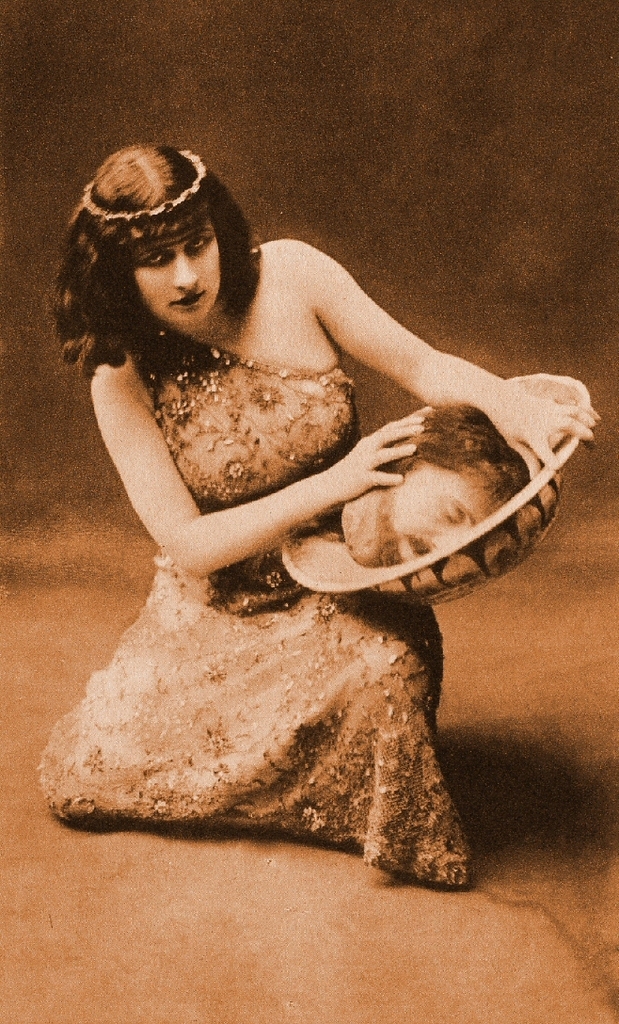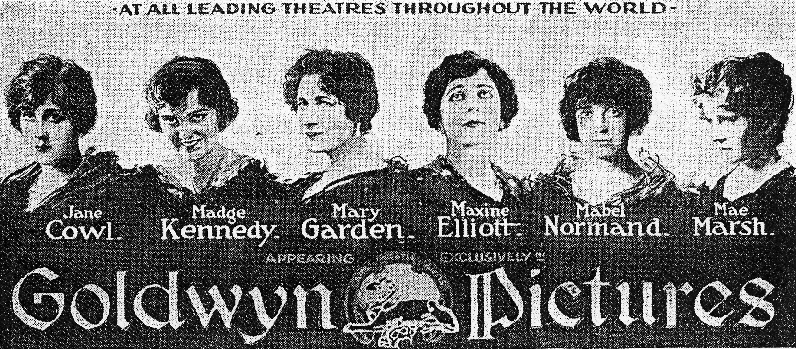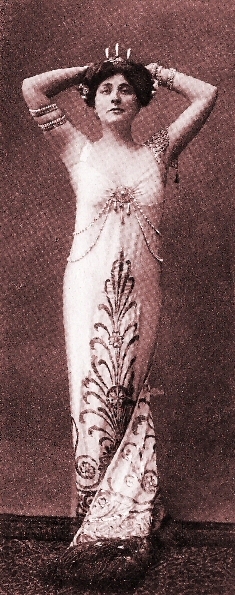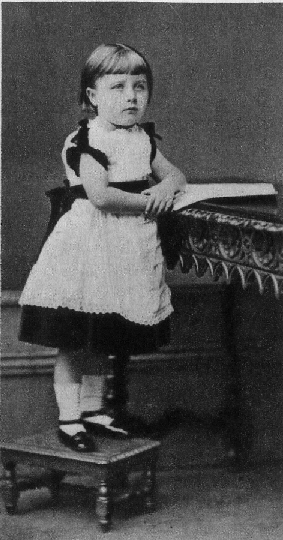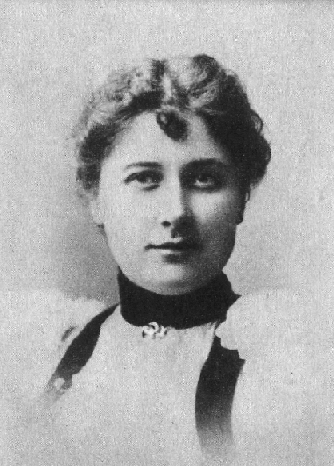MARY GARDEN OPERA SINGER
PAGE THREE
(Alan Cynic)
Jim...good point about the lack of recognition given to our achievers in the arts. I've always felt Aberdeen could make more of the Byron connection.
Those posters which were up a few years ago setting out a few things which Aberdonians had invented etc were a good idea, I thought.(Jim Brooks)
Oops. Completely forgot about Byron - and I was in Byron House when I was at the Grammar. Just shows how influenced by shallow glitz I am!
Mind you, Byron does have a square named after him, though square was the last thing you'd have called Byron. And remember Garden City? Wasn't that where the prefabs off Wellington Road
were?Mary Garden arrived in Chicago on 29 October 1910. It became become her artistic home and she would dominate the Chicago opera scene for twenty years. In November she sang Salome, a
favourite role, the most sensational and controversial in her repertoire. Mary never forgot the value of publicity, so she gave a press conference in advance in her suite at the Blackstone Hotel.
One observer described the scene:
"The door of her bedroom jerked back as though there had been sudden application of the hind end of a strong mule, and through the opening whizzed a tornado of choking perfume, shimmering
silk and carrot-red hair." She spoke of marrying a Turkish Pasha. "I can tell you I'd be enough for any man, even a Turk." She spoke of her flesh-coloured costume "Men like it because they can't
figure out where it ends and I begin."
When she finally sang the role after an unheard-of twenty seven orchestral rehearsals, she set off a barrage of fireworks that rocked the city to its moral foundations, shocked none other than
Al Capone - and filled every seat in the Chicago Auditorium!
MARY GARDEN - MOVIE STAR
Mary made two silent movies in 1917, "Thais", based on one of her greatest stage roles as the Alexandrian courtesan saved by religion, and a thriller called "The Splendid Sinner". Mary was the first
to admit that they were terrible. Without music, a stage and an audience she couldn't do it.
Nonetheless, with "Thais, our Aberdeen girl had the distinction of starring in the first film ever to be shown in the Vatican - at the express request of Pope Benedict XV.(Haytoner)
After Thais had received dreadful reviews, I loved a quip that Mary made about it; "Oh well, the next one's much better". Jim, it seems to me that although much of her life is a series of contradictions
and mystery, there is one thing you can be grateful for and that is the amount of photographs that exist of her, although I have yet to see any of her prior to 1900. Do you have any of these by any
chance? I am currently at the early 1920s in the book and find this part heavy going after the extremely interesting war years. Did she really try to enlist dressed up as a young soldier? And yet, as I
pointed out on another thread, I tend to enjoy the "boring" parts of a history, they are essential to the history. As far as the quality of her voice is concerned, a strong case can be made for it's
excellence, and an equally strong case can be made for it's mediocrity. It depends on which critics you lend credence to. This is an historical trait that mankind has. For every boxing expert who swears
that Jack Dempsey was the greatest heavyweight, there is another who argues that he was an ordinary fighter who was fortunate enough to rule over a period when there were no outstanding contenders.
So it seems to be with Mary; What do you measure her quality against? The first time I heard a recording of Enrico Caruso I was not at all impressed when comparing him to modern opera stars.
Listening to him many times I now have a much deeper feel for his voice and enjoy it much more. It depends on what you enjoy I guess. Another point in case here. I noticed that Mary was often critised
for "scooping" her notes, i.e. starting below the pitch of a certain note and moving up to it. I have not heard any examples of this in her recordings but I know exactly what the critics mean. The thing is, I
would find this technique pleasant to listen to; Joan Baez used to do something similar. One thing that grabbed my attention was the mention of her singing Ave Maria by "Bach-Gounod". My father used
to sing this in concert,and although I did not know at the time what he was referring to, I have a tape of him talking about it where he takes great pains to emphasise that it was this, more difficult version
that he used to perform. (I could make out the "Bach" clearly, but the follow up word I could not understand, and of course I can't ask him about it now.) Anyway, I play the tape again, and he definitely
says "Bach-Gounod", so that cleared up a little mystery.
Keep these little snippets coming Jim, they are very much appreciated.(Jim Brooks)
Hi Haytoner. Here's Mary, very self-possessed at age 5 and then in her teens:
As for Mary dressing up as a soldier and trying to enlist, I have no doubt she'd have wanted to, but equally she'd have wanted the publicity. She did nurse during WW1 but realised she could be more
effective by singing and donating funds, and she did a lot for convalescing soldiers here in the 1940s, buying up blocks of seats at His Majesty's Theatre so that they could see the latest shows.
As for her singing, I reckon the general view is that she had a very well trained but not exceptional voice; certainly over the years it stood up well to the pressures of singing big roles three and four
times a week. I think she divided opinion sharply because some opera lovers are all for beautiful singing while others want a believable characterisation, and she was definitely of the latter category. Did
I quote her earlier in this thread as saying "You come to hear Caruso, you come to hear Melba, but you come to SEE me!" She was truly unique so I suppose you can't really compare her to anyone.
Similarly with Caruso. Now that it's possible to get acceptable sound out of old records you can hear an astonishing warmth and richness that's about much more than good vocalising, it's about the
greatness of spirit that informs his singing. He was so exceptional that he could have "cheated" and still been better than anyone else, but he never gave less than 100%.
As for the Bach-Gounod "Ave Maria", that's the most famous of many settings, and it's the most difficult one that I know of. Your dad must have been a very fine singer indeed!
I have been asking about the Haytonians without success so far, but you still haven't told me your father's name.(Haytoner)
Hi Jim, these two photographs certainly fill in some gaps in the pictorial history I have had access to. The first one must have been take in Aberdeen. Are there any others taken before she left Aberdeen.
She certainly had a challenging and confident look even then, despite the fact she is standing on a footstool in order to lean nonchalantly on the table. Sorry, I forgot to mention my father's name; it was
Eddie McKenzie.(Jim Brooks)
I don't remember ever seeing other pictures of Mary Garden that would have been taken before she left Aberdeen. I guess a lot of family material would have been thrown out or destroyed, as Mary and
her sisters didn't seem to place much store by that sort of thing.
The next photo I know of is this one of her in her debut role of Louise in 1900. It's worth noting that "Louise" was a very modern opera in its day. It wasn't about gods or kings, it was about a bored
young girl who wants to escape from her family and experience life. It's all there in this photo of Mary in the role she most identified with.
Thanks for giving your Dad's name. I'll ask around and maybe the mention here will bring something to light.
(Haytoner)
I presume this photo was taken when she was with the Opera Comique. I have seen one or two others from 1900. Is it a fact that her sister burned all the letters between Mary and Hammerstein,
along with lots of other things that she considered "Old, and no-one would be interested in them"?
What a tragedy.(Jim Brooks)
Again, it's hard to be definite. The Royal College of Music in London have some or Mary's letters, some are preserved in collections throughout the UK, and in fact a friend of mine has about 20
personal ones we bought along with two photos from Milne's Salerooms. I kept the pix and she got the letters.
Mary did keep scrapbooks, but apparently did destroy some letters from Debussy. Maybe she genuinely didn't care, mayve she was just ill-trickit, but either way, as you say, a tragedy.
